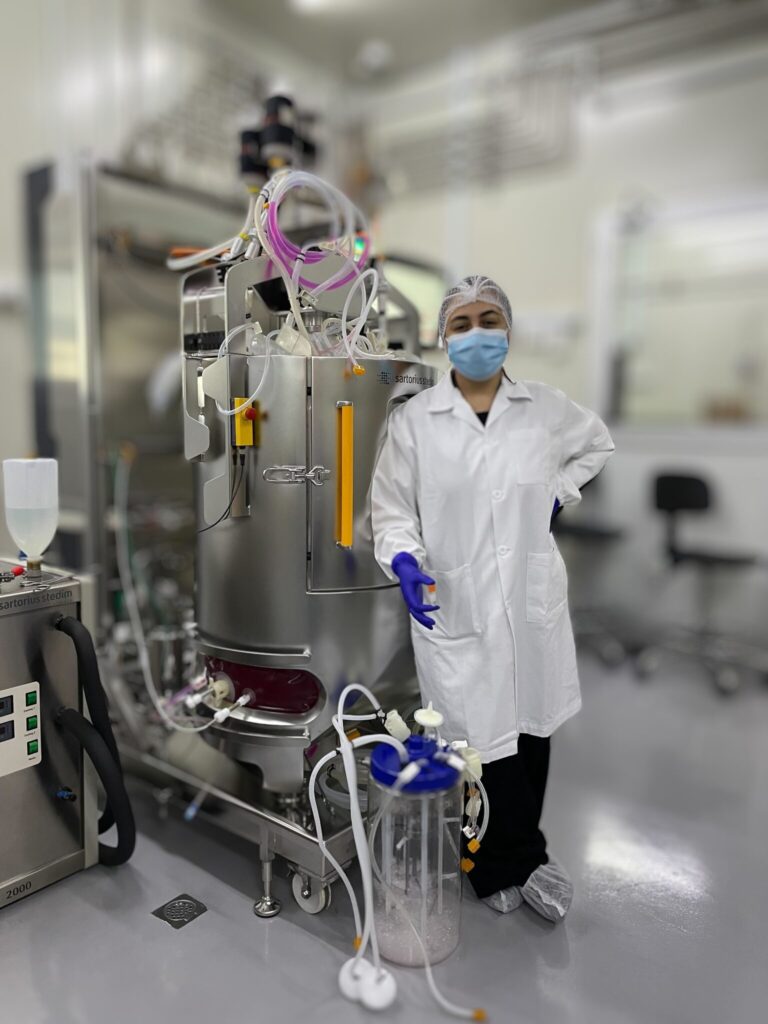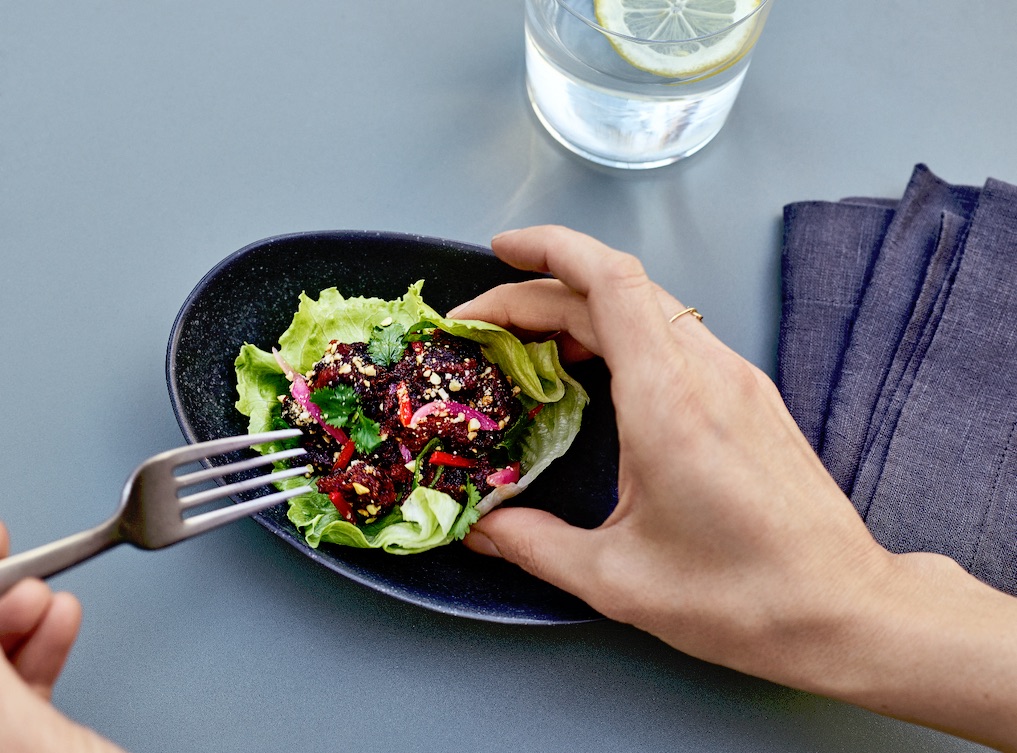Orbillion Bio Secures Funding & Reaches Scaling Milestone for Cultivated Beef Production
6 Mins Read
Californian B2B cultivated meat producer Orbillion Bio has secured additional funding to scale up production and develop its biotech platform, which completed a 200-litre production run in September.
The latest round of funding takes Orbillion’s total capital raised to $15M, and was co-led by The Venture Collective and At One Ventures, with participation from YCombinator, Metaplanet and other strategic investors, alongside university endowments.
The Californian startup will use the money to scale up its manufacturing, further develop its technology and premium cultivated beef product, as well as advance its regulatory path. It comes on the back of a successful 200-litre scale-up run of its cultivated meat in September, which it claims is the largest production run undertaken by a pre-Series A company in the sector. This will enable the production of more than four million lbs of cultivated meat annually.
The achievement will allow Orbilion to demonstrate “a new level of capital efficiency” in the industry, and it demonstrates the power of the startup’s algorithm to transform 2D culture into 3D culture in record time and at low costs – which are two of the industry’s tallest barriers towards commercialisation.
An algorithm to make cultivated Wagyu beef cheaper and faster

Founded in 2020 by Patricia Bubner, Gabriel Levesque-Tremblay and Samet Yildirim, Orbillion is known for its cultivated premium Wagyu beef. The company’s B2B model means its primary focus has been scaling up bioprocessing methods for commercial-scale production of cultivated meat, for which it has developed an algorithm that can make low-cost manufacturing possible.
The company describes the algorithm as “a predictive modelling platform to reliably simulate key media and bioprocess parameters that allow mammalian cell cultures to scale from 2D to 3D environments at unmatched speed”. This allows it to de-risk commercial scale-up in several ways.
First, in terms of predictability, the algorithm predicts how 2D cultured cells perform in a 3D environment, which helps establish the nutrient needs and growth environments cells need for successful suspension. The second aspect has to do with the yield – instead of relying on a single flat surface, Orbillion cultures cells in three dimensions (aka suspension), which increases the growing environment, cell density and yield exponentially.
Then there’s the speed. As fewer runs are required to refine its scaled-up bioprocessing, and its growing environments are high-density, the company says it can produce more cultivated meat in 10% of the time it typically takes.
“Adapting cells from 2D to 3D cell culture often falls short because of a failure to understand how media, bioprocess and cells work in harmony, and getting to this understanding typically requires expensive and time-consuming buildouts,” explains Yildirim, who is the company’s COO. “With our bioware and computational platform for cultivated meat, we can scale up in a fraction of the time. Our 200-litre run demonstrates that we can achieve in a few weeks, what takes most companies a full year.”
Rapid development and production, alongside well-honed media inputs, mean this can be done at a fraction of the usual cost. “We identified premium meats with a high price per kg as the breakthrough market to build a profitable business and to eventually achieve price parity at mass scale,” Bubner, who is the CEO, tells Green Queen. “Scalability, while critical for price parity, is not the only important criteria. It has to be hand in hand with intensification. Orbillion’s intensified process platform allows us to scale and hit the cost parity sooner than anyone else.”
Collaborations on the way to bring hybrid meat to market

Finally, there’s Orbillion’s asset-light strategy, which eschews capital-intensive, custom-built equipment for scaling up on pre-existing infrastructure. To facilitate this approach, the producer has collaborated with bioproducts and tech development startup Solar Biotech.
In 2022, Orbillion also teamed up with Dutch premium meats company Luiten Food, giving it access to the latter’s 1,200 distribution points across foodservice, specialty retailers and butchers. But Bubner hinted that this is just one of a number of commercial partnerships it has entered, with more information to come later this year.
“We are a B2B company, and our goals are a fast path to market for a cultivated meat product; to supply the market consistently; and to produce what customers want: tasty, nutritious product at the price of conventionally produced meat,” she says. “We aim to provide delicious products that fulfil our customer’s needs: products that are consistent in quality, high performing, and easy to integrate.”
For many companies in the space, the viable path to market involves combining cultivated animal cells with plant-based ingredients to create what is called hybrid meat. This further helps with driving down costs, and is the approach being taken by the likes of Eat Just, Aleph Farms, Meatable and Umami Meats.
Bubner confirmed her company will go down the same route. “Currently, Orbillion is focused on cultivated ingredients and a ground beef product that has been formulated with cultivated meat and plant-based ingredients to satisfy the high standards of meat-eaters and provide a product that tastes, looks and feels like traditionally harvested beef,” she said.
‘Technology cannot be uninvented’

The funding comes at a pivotal time for cultivated meat and food tech. Globally, the agrifood tech sector saw VC funding cut in half and reach a six-year low in 2023, according to a report by AgFunder this week, which earmarked cultivated meat as a sector to watch, given that it attracted just $177M in funding last year. And while industry leaders Upside Foods and Eat Just made history by receiving the first US regulatory approval of cultivated meat, which meant their chicken was available in restaurants, both have faced challenges too, from manufacturing and financial challenges to negative media coverage.
Within this difficult environment, Bubner says Orbillion has been able to raise fresh capital as it has consistently demonstrated to investors its ability to achieve and exceed milestones. “They have seen how our approach allows us to be fast and cost-effective,” she says. “So we feel incredibly fortunate to be in a position to put these resources to work, we’ll do so in the year ahead.”
It is shaping up to be a big year for cultivated meat, especially in the US, where it has been the subject of countless headlines after attempts by legislators in multiple states (and at federal level) to ban these novel proteins. The latest and most prominent story comes from Florida, where both the House and Senate have passed the bill, which is now expected to be signed into law by governor Ron DeSantis.
The move has faced backlash not just from cultivated meat companies, but even the meat industry itself, with the largest trade association for meat in the US labelling it “bad policy” that “limits consumer choice”. How does Bubner view it? “Technology, once invented, cannot be uninvented; how we use it is critical,” she says.
She compares this to insulin production, which used to be highly controversial at one point. “It used to be harvested from cows and pigs. It used to cause allergic reactions, infections, there were rampant impurities, then scientists discovered how to produce biosynthetic insulin by fermentation of microbes, and it’s higher quality, more readily available, and ditched the downsides. At one point, this was controversial; now, there’s no way we’re going back,” notes Bubner.
“Cultivated meat is an opportunity for current and future generations to make food independent of land, animals, and without the downsides of intensified animal agriculture. It’s a technology we owe our children to build,” she adds. “A cultivated meat ban is not going to stop science, or the way that climate change is affecting our food system or the need for other countries to gain food sovereignty.”



